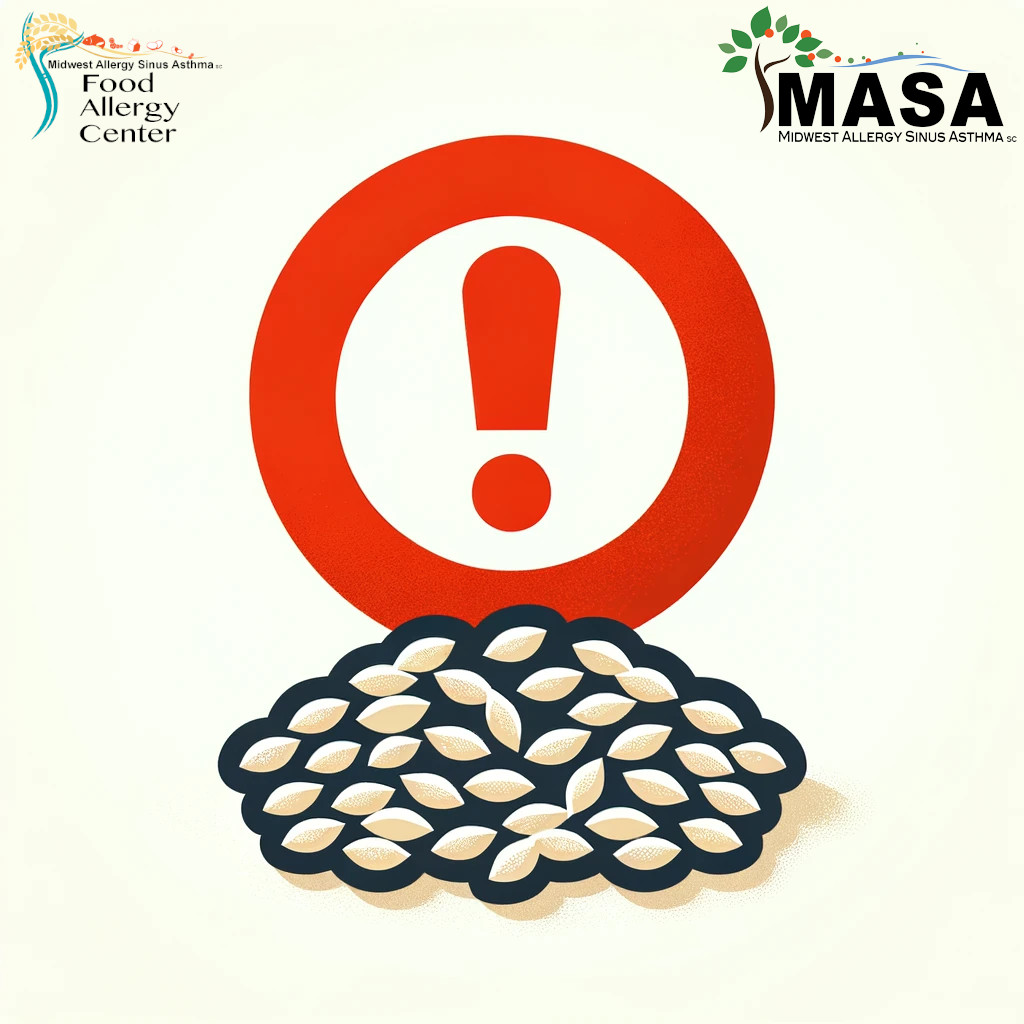
Sesame allergies can be diagnosed early on through specific allergy tests such as skin prick tests and blood tests for specific antibodies. Growing in prevalence and recognition, sesame allergy has prompted changes in labeling laws to include it alongside major allergens. It can cause severe reactions, similar to those triggered by other food allergens.
With growing popularity of “trendy” recipes through viral videos and food bloggers, sesame-based products such as sesame oil in Korean, Chinese, Japanese cuisines or the use of tahini in middle eastern recipes or creative vegan and vegetarian creations make the seeds more and more common in American pantries and around the world. This includes young college students preparing meals for themselves and sharing with friends by following recipes online, which may cause unexpected exposure to allergens. Though for some people, allergic reactions can be minor at first such as in forms of hives, it can escalate quickly and cause discomfort or anaphylaxis. It is recommended for people who may have doubts about food allergies to get a safe food allergy diagnosis to establish good practice to prevent adverse food allergy reactions and establish best practices to have a safe and enjoyable relationship with food. (Find out more about food types required sesame allergy labelling by the US law in our article here.)
At Midwest Allergy Sinus Asthma, we expertly address sesame allergies with specific Oral Immunotherapy (OIT) and Sublingual Immunotherapy (SLIT) protocols. These treatments start with controlled exposure to liquid forms of sesame and gradually increase the dosage. This methodical approach aims to build tolerance over time, thereby lessening the impact of sesame allergies on daily life and reducing the severity of allergic reactions.
Oral Immunotherapy (OIT) is a novel treatment for food allergies that involves gradually introducing small, controlled doses of the allergenic food to desensitize the immune system, thereby reducing the risk and severity of allergic reactions upon exposure. Sublingual Immunotherapy (SLIT) is a modern allergy treatment method that entails placing allergen extracts under the tongue, where they are absorbed into the bloodstream, helping the immune system build tolerance to specific allergens and reducing allergic reactions over time. Read more about OIT and SLIT here.
If you are interested in the treatment or learning more about the treatment, please call our office at 309.452.0995 for Normal office where Dr. Siri and Kat Lally run the OIT/SLIT program, or at 217.717.4404 for Springfield office.
